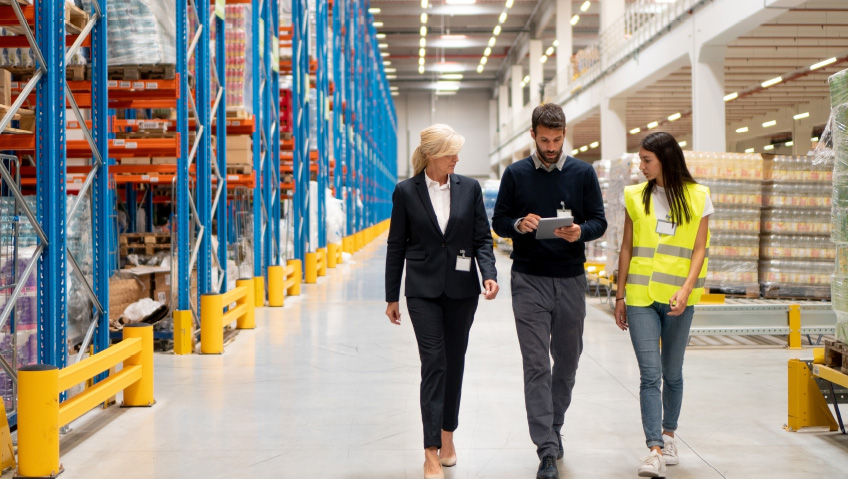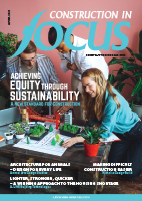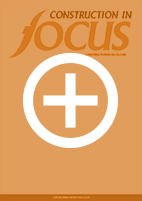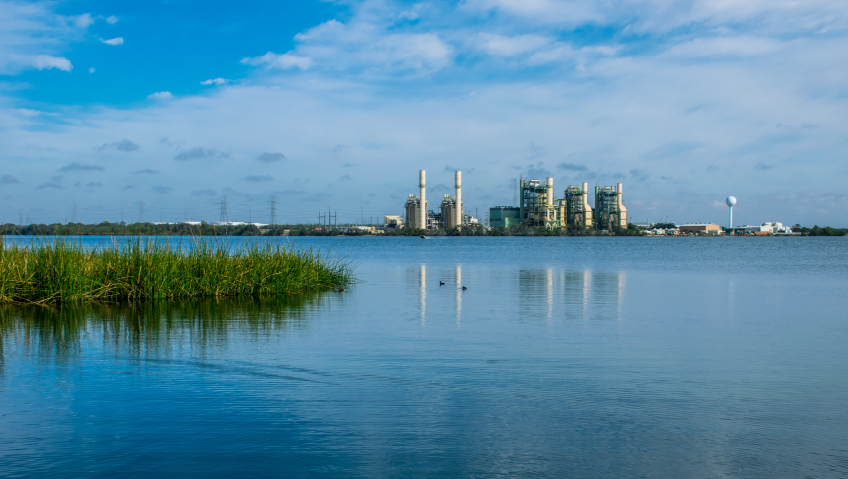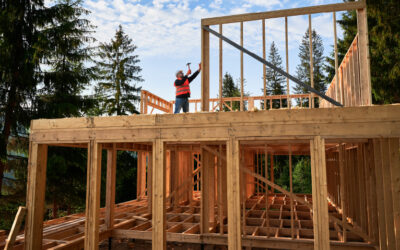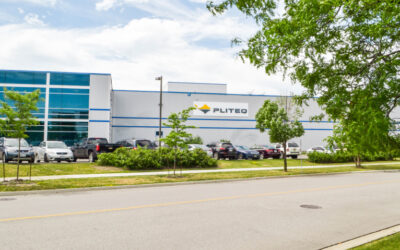In business since 1963, B.E. Atlas is one of Chicago’s largest independent hardware distributors. After profiling the company in 2018, Construction in Focus sat back down with President Jeff Kovarsky this month to hear the latest news.
One of the most significant recent changes in the company is that two partners have retired, leaving Kovarsky solely at the helm. He offers a valuable perspective on successfully navigating the transition. “I’m learning to become a better delegator,” he says. This is a skill that takes effort and some getting used to. “It is a learning experience—learning to let go of some things,” he says.
“Obviously when you don’t do everything yourself, everything is not always your way. You have to learn to not expect everything to be your way. I think the toughest part is learning how to let go,” he shares. “My father used to say to me, ‘you have two choices. You can be here 24/7 and have everything your way or you can have a life and learn to accept the fact that you’re not always right, and sometimes people do things, and it turns out better than the way you would have done it, and sometimes it doesn’t but you learn to accept that.”
One of the most notable, ongoing challenges the company has faced in recent years has been the growing popularity of big box stores. The team has had to adjust accordingly to remain relevant. “We made a big change in the way we did things,” Kovarsky says. “We never would have sold to the people that we sell to today, but our customer base sort of evaporated with the advent of the box store in our industry, and so as the numbers dwindled, we looked for another kind of person to sell to, and we started selling to contractors. That’s worked out very well. We still sell to stores but the numbers are not anywhere near what they were thirty years ago.”
B.E. Atlas was able to successfully navigate the pandemic, although there were certainly challenges. Initially, the team assumed the company would be shut down for a short period but, after examining the situation, they took a different tack.
“We made a decision to close for a couple of weeks when all the businesses were closed,” Kovarsky remembers, “and then, that weekend, I really spent the time to actually listen to what they were talking about and realized that it was very obvious that if you’re going to close, this is not going to be over in two weeks, and we couldn’t close for a year. We couldn’t close for six months.”
As the company was considered an essential business and allowed to stay open, the team ran the concept by employees and proceeded with caution. “In all honesty, I was very nervous about the whole thing,” he says, “but we just ended up never closing, and customers kept doing business. We’re in a business where, if you have a home and your sump pump breaks, you’re going to get it fixed, COVID or not. If your faucet is leaking all over the kitchen floor, you’re going to get it fixed, COVID or not. So business went on. It got slower for a while but business wasn’t terrible. It was okay and slowly built back up to where we were.”
Throughout the pandemic, the team enforced mask-wearing for employees and customers and followed all the standard procedures to regularly sanitize the workplace. Employees who were unable or too concerned to come into the office to work were still compensated.
“We tried to do the right thing as a company,” Kovarsky says. “Everybody got paid for every day. If they were sick, they got paid. If they were here or not, they got paid. We had some employees that took some extra time because they weren’t comfortable with it, and I paid them anyway because I think it was the right thing to do.”
Now, the primary challenge has become the rising cost of doing business. “Pricing is becoming a problem, a big problem,” he says. “There’s only so much you can charge somebody to do something, regardless if the cost has risen. [If] you’re going to replace something in someone’s house, the number can only get so big before it’s not doable anymore.”
The supply chain is still in “terrible shape,” Kovarsky adds. “There are things we’ve been out of for months and months and months, and pricing is continuing to rise between the freight costs on land and from China.”
These challenges are not just affecting the business; they are making it tougher for employees to make ends meet. “The cost of living has gone up dramatically, and I try to, the best I can, keep pace,” he says. “I’ve given a lot more raises and larger raises, than I typically do because they’ve got to eat… As an owner of a company, I feel like I have an obligation to them to do the best I can within the limits of what the company is capable of doing to support them.”
The retirement of the company’s previous partners has given some wiggle room to raise employee pay. “I made sure of that,” Kovarsky says. “I didn’t want to be up against the wall. I’m using those extra funds to do this, but to continue to go forward, we have to grow.”
This need has led the team to try new tactics to promote the business. “We’re doing a lot of things we never did before,” he adds. “We’re on a Spanish radio station, a Polish radio station. We’re doing different types of advertising.” This includes wrapping trucks with promotional material, which spreads the word “because we’re running around town all the time.”
Pushing an online presence is another big effort, and a completely revamped website is currently under construction. To make this effort a success, Kovarsky has made a point to hire people who can navigate social media and make web sales. It goes back to his wiliness to delegate responsibility.
“I’m not as at ease with web sales and things that didn’t exist for much of the time I’ve been in business. Having youthful people who grew up with that is going to be an advantage going forward. I’m kind of letting them run with it a bit.”
Some of the company’s strategies for growth and success will never change. Instead, the team will continue to rely on the same underlying, tried and true business practices that have kept B.E. Atlas in business for six decades.
“While times have changed, I don’t think business really has,” Kovarsky says. “We built a reputation that certainly didn’t start with my generation, but with the generation before us: being honest, not gouging, charging a fair price for the goods we sell, and I think that has been the reason we’ve survived maybe when others haven’t. We’re not the kind of company that raises prices on salt when it’s snowing. We don’t try to get away with things. We work on a very standard margin. It is a fair margin, and it’s kept us competitive in the marketplace for all these years.”
With decades of experience in navigating an evolving industry—and armed with new talent propelling the business forward—B.E. Atlas is well placed to continue to overcome challenges and succeed in a competitive marketplace.

